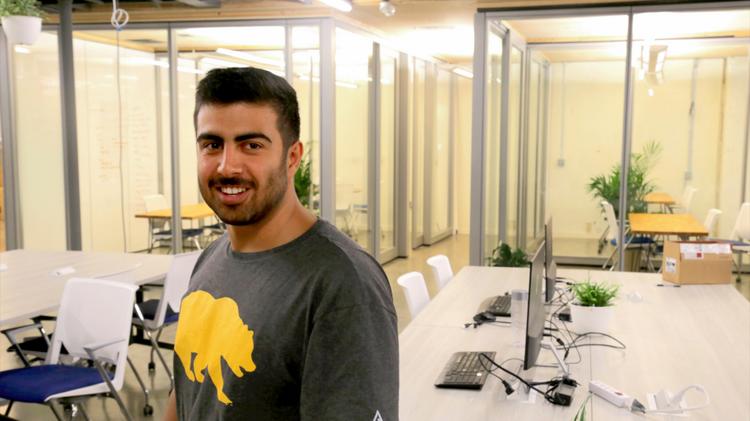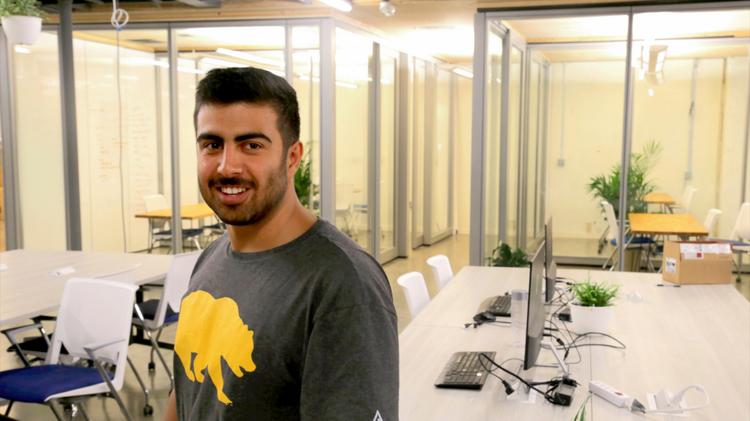
UC Berkeley muscles in on the startup space, launching 7,000-square-foot institute
UC Berkeley muscles in on the startup space, launching 7,000-square-foot institute
Entrepreneurs from UC Berkeley have a new home in an off-campus facility to help grease the wheels for the university’s thriving startup ecosystem.
In April, the House Fund, a $6 million venture fund exclusively for Cal startups, launched with a portfolio of six early-stage companies across robotics, ed-tech, digital health and artificial intelligence. Now, the fund has expanded its footprint to include a 7,000-square-foot facility located just outside the campus to house startup residencies and support programs for the countless promising ventures hatched by students and faculty.
Called The House, the “startup institute” is a home for the House Fund, its venture affiliate, and residency programs to provide longer-term support for entrepreneurs than a typical venture accelerator could provide. And it’s attracted big-name supporters like University of California President Janet Napolitano, along with many other prominent folks across the university’s faculty and alumni network.
“Once we were able to tap into the right network of alumni, we saw interest spread like wildfire,” says Cameron Baradar, the institute’s managing director. “As the first startup fund for UC Berkeley, no one had presented the right opportunity at the intersection of investing and education.”
The House and UC Berkeley are not formally affiliated, with the House Fund’s financial backing coming largely from a network of alumni investors across the Bay Area. But it is one manifestation of a broader effort by the UC system to encourage entrepreneurship across all of its campuses. Earlier this year, the California State Assembly passed legislation to provide $66 million in funding to support entrepreneurship programs, divided equally across its 10 campuses over three years. UC Berkeley is set to receive $6.6 million from that bill, called AB-2664.
“Cameron was an enthusiastic and invaluable member of the team that got legislative funding of UC’s innovation and entrepreneurship efforts. His same enthusiasm has led to the launch of The House at Berkeley,” Napolitano said. “We are happy to work with The House to foster even more innovation and entrepreneurial activity within the UC system.”
Baradar, a Cal computer engineering alumni who worked on lobbying efforts for that bill along with Napolitano’s office, says that universities at large need a new and distinctive model for turning student innovation into successful business ventures.
“Y Combinator and others popularized the accelerator model, and since then, just about every variation has been tried,” Baradar says. “But we think bringing innovation out of a university is a fundamentally different problem to solve: When you start with 40,000 students aggregated on campus on campus for four to six years, researchers who have been working for decades, plus half a million alumni, the question is how to create entrepreneurship pathways for those students and researchers.”
Among the university’s 500,000 alumni are countless venture capitalists and founders in the greater Bay Area: Some companies with at least one founder from Cal are Apple (NASDAQ: AAPL), VMWare ( NYSE: VMW), Tesla (NASDAQ: TSLA), and Tanium, among many others. Notable startups that were conceived on-campus include IndieGogo, InDinero, Lily Robotics and Databricks, acquired by Salesforce (NYSE: CRM) for $600 million. The broader ecosystem is vast, with 468 startups created by Cal students faculty and alumni last year, raising $4.1 billion in total according to Pitchbook.
Startups currently in residency at The House include Indoor Reality, an indoor mapping startup founded by engineering professor Avideh Zakhor, who previously sold a company to Google (NASDAQ: GOOG). It’s a convenient place for student and faculty entrepreneurs to turn for space, networking support and access to investment opportunities, she says: “The House has been able to provide me and Indoor Reality with game-changing support in building the foundations for this new business. I’m incredibly excited about the future of entrepreneurship at Berkeley because of The House.”
In addition to a buzzing network of founders and those eager to invest, The House also has the enthusiasm of faculty like computer science professors like Scott Shenker, himself a successful entrepreneur interested in helping students who want to start businesses.
“They are bringing together the best resources, and building a pathway of support for founders at all stages – whether it’s one of my students or a serial entrepreneur – to be successful,” Shenker says. “Berkeley has been waiting for this.”

